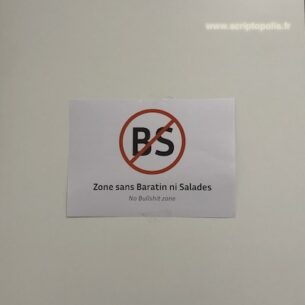Comments

Paris, october 2011.
In the so called Web 2.0, some writing practices have been given paramount importance. Indeed, it is one of the main points that differenciate the ‘2’ from the ‘1’: people do not only read anymore, they write as well. And the frontiers between reading and writing (between consuming and productng) are getting more and more porous. Consumers are now proactive. There’s a pessimistic vision about these changes that assimilates them to a displacement of work. Crowdsourcing would be a way for big companies to set their own customers to work without almost no cost. On the optimistic side, one can emphasizes the great help this kind of work brings to other custommers. Take comments and reviews and see how incredibly useful they can be. The force of the words from a person like you and me who tells what she liked or not in this hotel ; why this book has to be read or what she and her kids think about this zoo. Some economists even wrote that the value have partially switched from comodities to the personnal and institutionnal recommandations that now surround it.
We have a good exemple of such informational value here: who thought 1. these tags could be considered as ‘drawings’ and that 2. they had been made by ‘bastards’?






